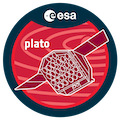Speaker
Description
The PLATO mission is expected to discover thousands of planetary systems hosting rocky and gas giant planets that will provide insights into the formation and evolution of such systems, with particular focus on planets orbiting in the habitable zone of their host stars. The exoplanets detected by PLATO by means of the transit method will have to be confirmed with additional observations from ground observatories in order to discard false positive scenarios. Besides such additional observations will also be critical to further characterise the properties of the exoplanets such as their mass. This means that several observational facilities providing for instance high-contrast imaging, and photometric and spectroscopic monitoring of the planet candidate host stars will have to be coordinated. The Ground-based Observations Program (GOP) of PLATO is in charge of the preparation of the tools to analyse the data, the infrastructure to coordinate all the observations, and the gathering of the observational facilities that will participate in the project. At the Institute of Space Studies of Catalonia (IEEC) we are developing the software for the interfaces and communications between the different subsystems, the associated data handling, and the scheduling of the observations. The GOP Operational Centre (GOPOC) will be defined and operated by the IEEC as well, which will act as the physical interface between observing facilities and the PLATO data centre, also providing the necessary computing resources and temporary storage for these observations and their planning. From the one hand, fluent communication will have to be maintained between the PLATO subsystem providing planet candidates, the PLATO data centre, the observatories carrying out the validation observations, and the quality control subsystem. On the other hand, an efficient distribution and planning of the observations on the different facilities will be essential to make the most from every resource. We are developing an automatic scheduling system that will take into consideration the properties of the planets and the vetting strategy, and the capabilities of the facilities to produce optimised plans. This is based on our experience producing scheduling tools for projects aimed at exoplanet discovery and characterization for which monitoring of radial velocities, or follow-up of transits are needed, as part of the Scheduling Telescopes as Autonomous Robotic Systems (STARS) project developed at IEEC. In this talk we will outline the status of this communication and scheduling systems and we will provide details that might be of interest to the community that will be involved in the PLATO follow-up program.

